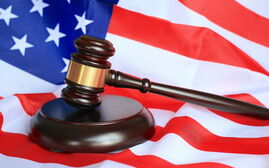Processing Your Payment
Please do not leave this page until complete. This can take a few moments.
- News
-
Editions
-
- Lists
-
Viewpoints
-
Our Events
-
Event Info
- Women's Leadership Forum 2025
- On the Road with Mainebiz in Bethel
- Health Care Forum 2025
- On The Road with Mainebiz in Greenville
- On The Road with Mainebiz in Waterville
- Small Business Forum 2025
- Outstanding Women in Business Reception 2025
- On The Road with Mainebiz in Bath
- 60 Ideas in 60 Minutes Portland 2025
- 40 Under 40 Awards Reception 2025
- On The Road with Mainebiz in Lewiston / Auburn
- 60 Ideas in 60 Minutes Bangor 2025
Award Honorees
- 2025 Business Leaders of the Year
- 2024 Women to Watch Honorees
- 2024 Business Leaders of the Year
- 2023 NextUp: 40 Under 40 Honorees
- 2023 Women to Watch Honorees
- 2023 Business Leaders of the Year
- 2022 NextUp: 40 Under 40 Honorees
- 2022 Women to Watch Honorees
- 2022 Business Leaders of the Year
-
-
Calendar
-
Biz Marketplace
- News
- Editions
- Lists
- Viewpoints
-
Our Events
Event Info
- View all Events
- Women's Leadership Forum 2025
- On the Road with Mainebiz in Bethel
- Health Care Forum 2025
- On The Road with Mainebiz in Greenville
- On The Road with Mainebiz in Waterville
- + More
Award Honorees
- 2025 Business Leaders of the Year
- 2024 Women to Watch Honorees
- 2024 Business Leaders of the Year
- 2023 NextUp: 40 Under 40 Honorees
- 2023 Women to Watch Honorees
- 2023 Business Leaders of the Year
- + More
- 2022 NextUp: 40 Under 40 Honorees
- 2022 Women to Watch Honorees
- 2022 Business Leaders of the Year
- Nomination Forms
- Calendar
- Biz Marketplace
Maine AG sues chemical giant Monsanto for allegedly polluting state's waters with PCBs
 File photo
A federal judge has ruled that the USDA cannot restrict funding for Maine food programs.
File photo
A federal judge has ruled that the USDA cannot restrict funding for Maine food programs.
Maine Attorney General Aaron Frey has filed a lawsuit against Monsanto Co., the former agricultural chemical conglomerate, for allegedly polluting the state's rivers, streams and wetlands over the course of decades.
The 47-page complaint, filed Friday in Cumberland County Superior Court, claims Missouri-based Monsanto and its legal successors knew of the harm caused by polychlorinated biphenyls, chemicals also known as PCBs — but continued to sell products with them anyway.
PCBs were used in numerous products for more than 40 years before they were almost completely banned by the federal government in 1978. From 1935 to 1977, Monsanto manufactured 99% of all the PCBs used or sold in the U.S., according to Frey's complaint.
He will seek unspecified damages for contamination in the state, including the costs to clean up and monitor the 400 miles of Maine rivers and streams and 1.8 million ocean acres that have been identified as impaired by PCBs.
PCBs are not only toxic and potentially cancer-causing in humans, but are dangerous to wildlife and the environment. The compounds are known to accumulate and remain for years without breaking down or becoming less hazardous.
Frey claims the company knew those dangers were associated with its products.
“We have evidence that Monsanto knew that its PCBs products were causing long-lasting harm and chose to continue to make money off poisoning Maine’s people and environment,” he said in a news release. “I am taking action to demand that Monsanto pay for the harm it knowingly caused our state.”
To support the state’s allegations, the complaint highlights internal memos from Monsanto acknowledging that PCBs were “nearly global environmental contaminants leading to the contamination of human food particularly fish, the killing of some marine species shrimp, and the possible extinction of several species of fish-eating birds."
Replying to questions from Mainebiz, Monsanto said in a statement, “We will respond to the complaint in greater detail in court at the appropriate time, however, we believe this case is meritless as Monsanto never manufactured or disposed of PCBs in the State of Maine, and any PCB-containing products that could be the source of any impairments in the state were manufactured and disposed by third parties.
"Under applicable law, a manufacturer of component parts is not responsible for the downstream, third-party uses of a product that it lawfully introduced into the stream of commerce and over which it has had no control for nearly five decades."












0 Comments